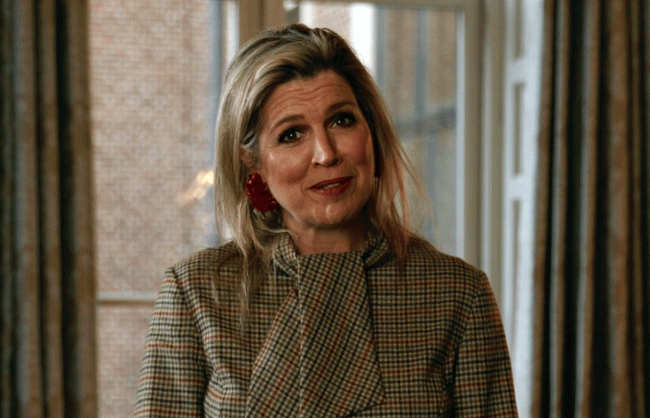
Her Majesty Queen Máxima of the Netherlands, the United Nations Secretary-General’s Special Advocate for Inclusive Finance for Development (UNSGSA), provided a pre-recorded keynote address for the World Bank Group's Women, Business, and the Law 2022 event held on 1 March 2022. The UNSGSA emphasized the importance of reforms that promote gender equality in economic life to support sustainable development.
---
Ladies and gentlemen,
It is an honor to be with you today.
Financial services are a means to an end. They provide people with the tools needed to respond to economic shocks and build better futures for their families.
I am grateful for the tremendous progress we have made. Since 2010, more than 1.2 billion people have gained access to financial services and therefore have a chance to transform their lives.
But opportunities are not evenly distributed. In most countries, women are facing more barriers than men. This disparity has been made worse by the COVID-19 pandemic.
Time and time again, I see that financial inclusion is insufficient when it is not backed by policies that give women equal economic opportunities.
For example, can a woman and a man access the same jobs? Can she own land or sign a contract?
Far too often, the answer is no.
Globally, women have only three-quarters of the legal rights afforded to men.
Women in 86 countries cannot legally do the same jobs as men.
As a result, we are leaving our full economic potential untapped. The 2022 Women, Business and the Law publication makes this abundantly clear.
The barriers to women’s development are affecting their productivity and livelihoods. Such restrictions impact nearly 2 billion women worldwide.
This inequality is not only unjust, but it also makes no business sense. McKinsey estimates that achieving equal labor force participation would yield an additional $28 trillion to global GDP by 2025.
We have many good examples of countries that have taken concrete steps.
- Women in Gabon now have equal rights to property as their husbands.
- Egypt made it illegal for financial institutions to discriminate based on gender.
- And Pakistan lifted restrictions on women’s ability to work at night.
Technology is also presenting some new opportunities that help bridge traditional barriers faced by women. Digital platforms and online marketplaces can help women-owned SMEs grow and reach new markets.
But while technology is part of the solution, it is not a panacea.
We need to consider the significant digital gender divide. For example, there are still 234 million fewer women accessing mobile internet than men.
So, affordable digital connectivity, building digital literacy, and safeguards, such as consumer protection, are all necessary to make technology work for women.
Looking ahead, I urge policymakers to dive deep into the findings of this rich report. Identify shortcomings, prioritize this agenda, and accelerate reforms. We need to address legal biases against women in terms of accessing credit, signing contracts, and registering a business.
The private sector also has a big role to play. It is important that we bring more women into key supply chains, either as suppliers, employees, consumers or entrepreneurs. This will drive inclusion, innovation and improve profits.
It is important that we all commit to monitoring the pace of reforms and their implementation.
Congratulations to the World Bank team on this important report. Now is the time to get to work and create a brighter future for women around the globe. For the women, for their children, their communities and for all our economies.